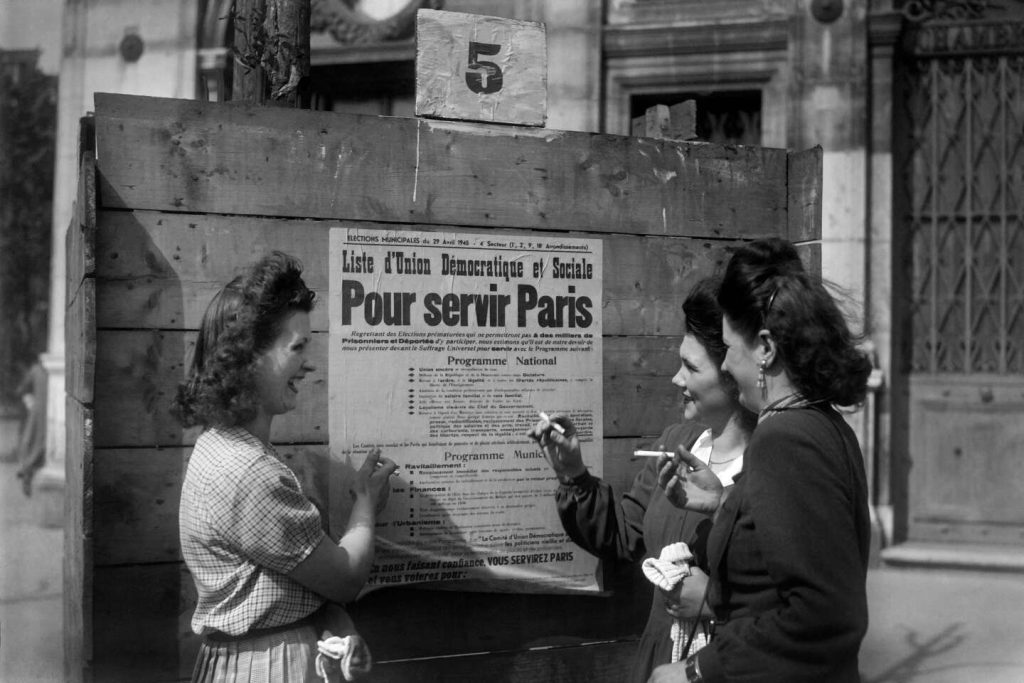Eighty years ago, on April 21, 1944, French women finally became citizens. Article 17 of the ordinance of the provisional government of the French Republic, based in Algiers, declared: “Women have the right to vote and to stand for election under the same conditions as men.” This was a unique aspect in French history, as the right to vote and the right to be elected were not granted through parliamentary votes, but through an ordinance following the Resistance, after 150 years of civic mobilizations by determined activists.
However, eighty years later, where do we stand in terms of gender equality in politics? It is evident that while the right to stand for election was a necessary step, it is far from sufficient in the context of French history and mentalities. Binding laws have been and still are necessary for practices and realities to evolve. For instance, while the National Assembly elected in October 1945 had only 6% of women, this percentage had not changed by 1993, nearly fifty years later. It was only through the gender parity movement of the 1990s and mobilization for laws establishing gender parity in elected bodies that tangible progress was made, particularly through the constitutional revision in 1999.
Today, it may be time to shift from “favoring” gender equality to “guaranteeing” it and truly enshrining gender parity in the Constitution. Despite undeniable progress made by various laws in the 2000s, there are still many areas where gender parity is lacking. For example, only 42% of women serve in municipal councils in communities with less than 1,000 inhabitants. Women make up only 26% of executives in intermunicipalities, which are predominantly led by men. Additionally, only 20% of mayors or department presidents are women. The Senate has only 36% female senators and the National Assembly has 37% female deputies, with no evolution in representation between 2017 and 2022.
It is also crucial to address the sexist and sexual violence that female elected officials face within these bodies. In 2021, the network of local female elected officials conducted a survey in which nearly 1,000 women responded. Among them, 74% reported experiencing sexist or sexual violence in the context of their mandate. Of these, 82% stated that the violence came from fellow elected colleagues. These dedicated representatives, who work for their communities and constituents, become victims themselves. These violence incidents reflect a part of the distress experienced by female elected officials, as evidenced by resignations in recent years. However, mechanisms to defend and protect these representatives of the Republic are either non-existent or inadequate.


